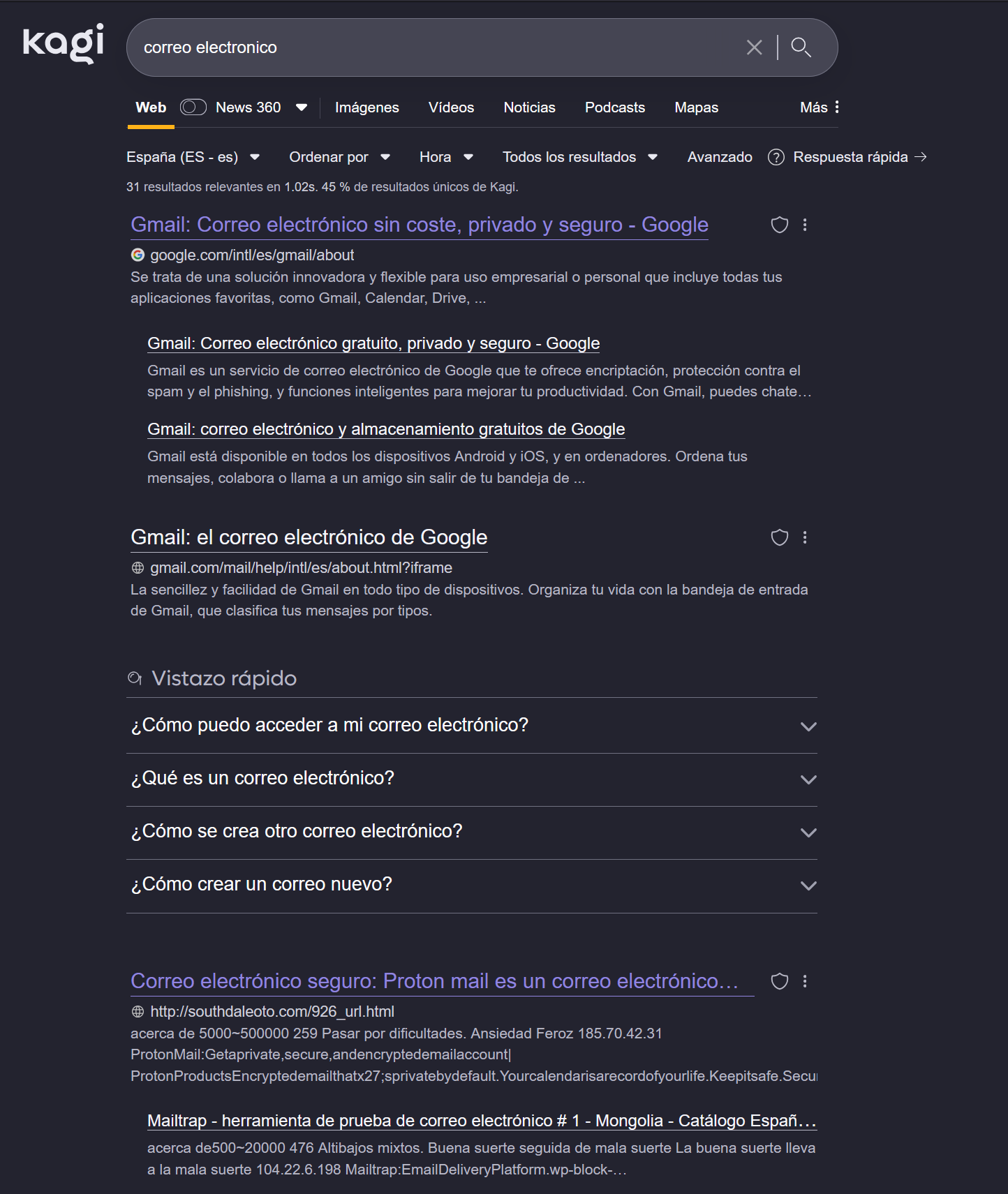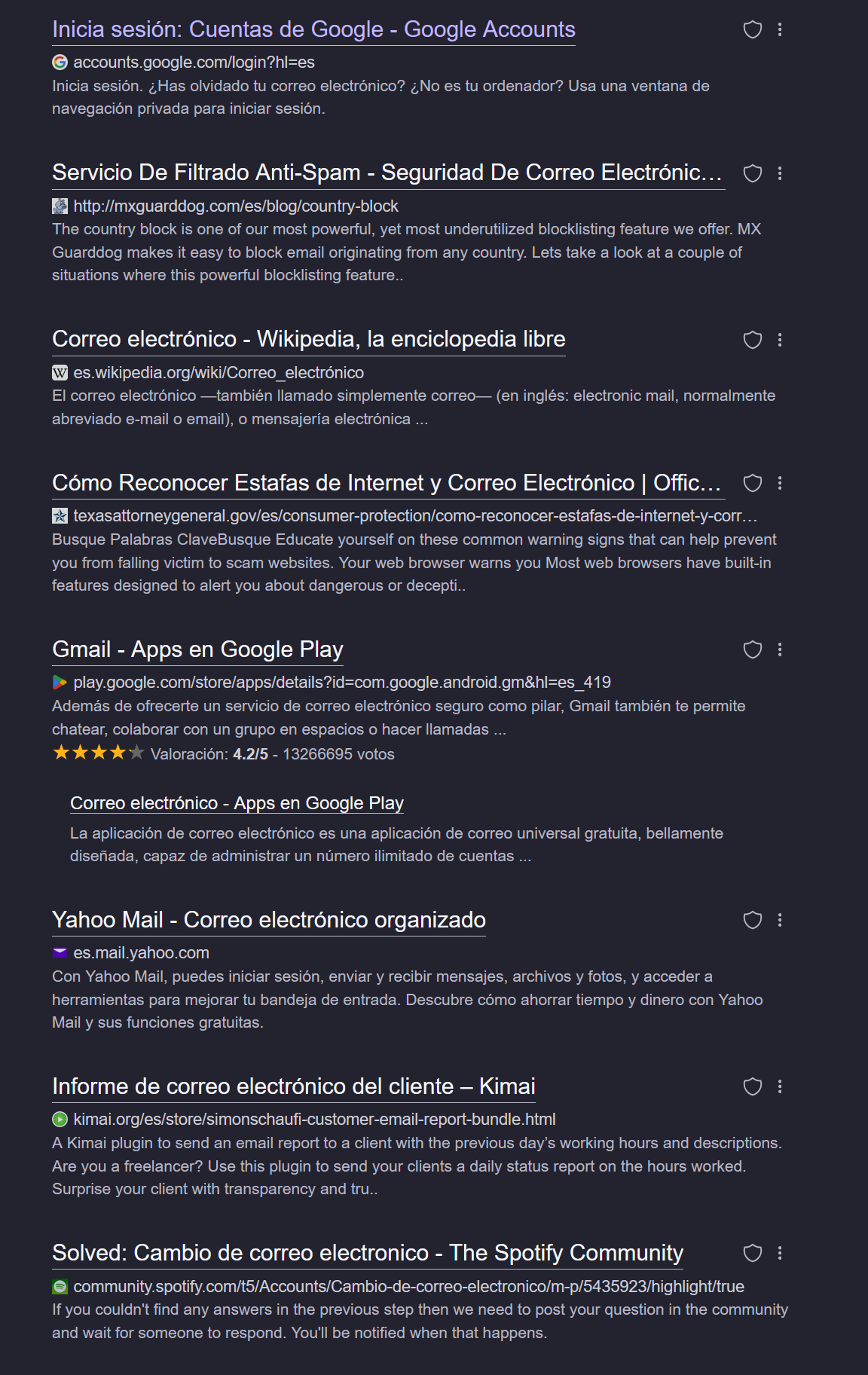Dustin
It is a legitimate and respectable opinion, but I do not agree with what I propose it is not advertising.
If a user searches for Outlook, it is logical that Outlook appears in first position, if he searches for Gmail, then exactly the same. My proposal addresses generic terms such as searching for "email" if you search for a generic term for a service that is not linked to any brand or company, it seems reasonable that more than 2 or 3 options appear on the first page, and if they are alternative services that "supposedly" protect the user's privacy, offer encryption and offer subscriptions instead of a free service in which the consumer is the product, and if it is free software, then in my opinion it is a victory for the user since it is offering alternatives to existing monopolies.
Regarding what you say about objectively inferior alternatives being offered, it will depend on the case. There are products in which Microsoft and Google are industry leaders, which is unquestionable, but there are other sectors in which their products are far from leading and offering an unknown alternative with potential seems to me to make common sense.
Regarding the fact that they are "irrelevant", well, probably in terms of market share, many of them are, but being irrelevant is not the same as being a bad product. A clear example is Kagi, which in my opinion is the best search engine on the market and I gladly pay the Ultimate fee. I found Kagi by chance in a Reddit post because it does not have a great marketing coverage. My proposal aims to show users when they perform a generic search for a service small unknown treasures of their respective niches that the user may not know about and may end up hiring it and come out ahead in terms of functionality, privacy or anything else.
So I don't think it can be considered a betrayal of Kagi's mission, since I understand that Kagi's mission is to offer quality and diverse search results, not to repeat the Google pattern by imposing its own services or those of those that bid the most money in the first positions. But I repeat, those services from Google, Microsoft, etc., it is obvious that Kagi should list them in its results, since many of them are industry leaders and vital for everyday life, but I don't see the harm in offering alternatives for users to discover other worlds.
I agree that Kagi is powerful and allows you to create your own filters, but my suggestion is that for what I consider a common group good, I can create my own ethical filters, which is great, but if the current search formula can be improved for everyone, I would like to contribute to that if it helps to popularize great services like Kagi that remain hidden most of the time in the different search engines.
In these images I show what appears when searching for the term "email" (in Spanish, which is my language). Of all those results, only 3 providers appear: Gmail, Outlook and Yahoo. I don't include ProtonMail because the link it leads to is not official. This clearly shows that perhaps currently there are not very high quality results offered in certain searches. It is likely that someone wants to search for generic terms to find new and interesting services and not have to resort to blogs of independent people who recommend the services they consider or even make recommendations for a fee as covert advertising. That is why I think it is important for the search engine to take the initiative to recommend services in its results with a reasonable criterion, not based on a monetary transaction, as Google does, where you do not appear unless you pay millions of dollars. The quality of searches by competent services should prevail, and not services that pay to appear or are monopolies.



